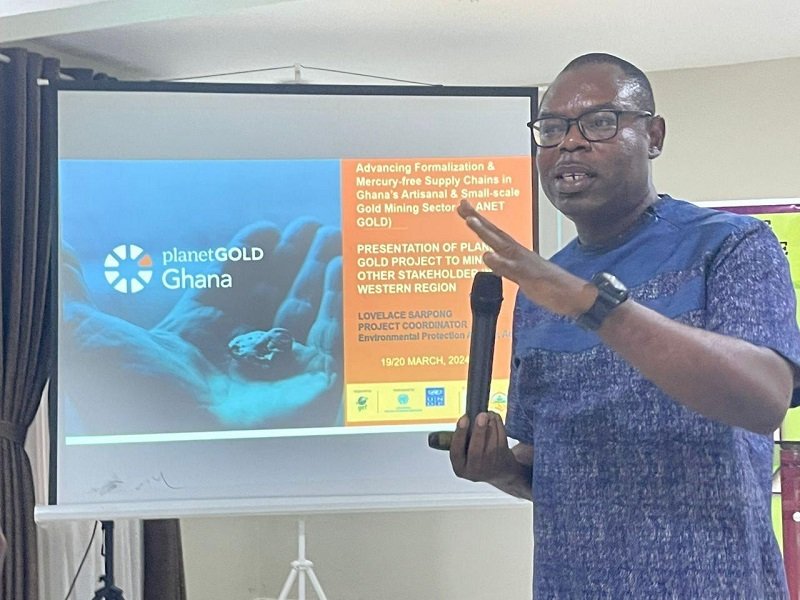Hot!
Chiefs of Aowin petition President to sack Western North Regional Minister

President Nana Addo Dankwa Akufo-Addo
Chiefs of Aowin in the Western North Region have petitioned President Nana Addo Dankwa Akufo-Addo to remove Mr Richard Ebbah Obeng from office as the Western North Regional Minister.
The petition, signed by 16 chiefs, asked the President to sack the Minister over allegations that he was in support of perpetrators who had allegedly assaulted Beyeeman Tano Kwaw Benbuin III, Omanhene of Aowin Traditional Area.
“There have been countless and constant plots and schemes against the Omanhene, Beyeeman Tano Kwaw Benbuin III, including assaults with offensive weapons.
“We would like to bring to your notice that it is alleged that the Western North Regional Minister, Hon. Richard Ebbah Obeng, supports the perpetrators’ assaults on the Omanhene and his palace.”
The 16 chiefs are: Nana Ebbah Kojo II, Chief of Abokyia; Nana Ofori Osipim II, Chief of Agyeikrom; Nana Konadu Yiadom II, Chief of Amanhyia; Nana Nsiah, Kyeamehene of Enchi; Nana Enoku Annor II, Chief of Jema; Nana Yaw Anini II, Chief of Disueano; Nana Tano Kabaah, Chief of Kwawu; Nana Payin II, Tufuhene of Enchi.
Others are: Nana Enoku Payin III, Chief of New Yakasi; Nana Kojo Ntow III, Chief of Nkwanta; Nana Meisu Payin IV, Chief of Sewum; Nana Oppong Payin II, Chief of Achimfo; Nana Adu Kwame III, Chief of Nyankomam; Nana Kojo Miah III, Chief of Boinso; Nana Bullu Tano II
Chief of Amonie and Nana Oppong Payin III, Chief of Omanpe.
The chiefs said they had reported the offensive and criminal conducts to the Police but had not had the requisite Police action.
The petition said the alleged involvement of the Western North Regional Minister in the on-going attack on the palace was now an open secret in Enchi.
It said it was difficult to believe that the Regional Minister who was an indigene of Aowin and the Head of the Regional Security Council (REGSEC), to date, had been silent and “unconcerned” about the unrest and insecurity in Enchi and Aowin in general.
The chiefs also alleged that the Minister had failed to solve the Aowin, Suaman-Dadieso and the Sefwi Wiawso Traditional land boundary issues.
The petition said the unresolved issues had contributed to border conflicts between Aowin and the Sefwi Wiawso Traditional Areas.
The chiefs appealed to the President’s Office to launch a thorough investigation into the various assassination attacks on the Omanhene and death of four people, and provide adequate security for the Omanhene.
“Respectfully, we would like that all matters pertaining to the insecurity of Aowin Traditional Area occasioned by the various plots to murder the Omanhene of Aowin Traditional Area and all linked cases transferred to the National Police Headquarters for full and impartial investigation to be conducted and all the perpetrators brought to book irrespective of their political affiliations,” the petition said. -GNA
Hot!
Youth urged to take proactive stance on ozone depletion

•Mr Joseph Amankwah, first counting from, some officials from EPA and UNDP in group picture with the student
Mr Joseph Amankwah, the Director of Ozone Layer and Climate Change at the Environmental Protection Agency (EPA), has urged the youth to take a proactive stance on issues related to ozone depletion, emphasising that their future would be most affected by its consequences.
Speaking during a student engagement event at the Ghana Secondary School (GHANASS) in Koforidua, he highlighted the critical role young people played in tackling climate-related challenges.
Mr Amankwah explained that human activities, such as the use of certain chemicals, were significantly contributing to the depletion of the ozone layer and driving climate change.
He said it was important to educate the youth on these issues, encouraging them to share this knowledge with their families to foster a broader understanding and active participation in climate action.
He urged the education sector to integrate lessons on the ozone layer, the causes of its depletion, and its links to climate change into the curriculum.
The event, organised by the EPA in collaboration with the United Nations Development Programme (UNDP), was designed to foster environmental awareness and promote a sense of responsibility among young people.
Mr Amankwah noted that ozone layer depletion was affecting everyone, including children, as it alters weather patterns and threatens the natural environment.
He highlighted the need for young people to develop ‘green skills’ to adapt to the challenges of climate change and to understand ways to combat it.
He added that World Ozone Day, observed every September, would focus on youth engagement in environmental issues, to help them understand the long-term consequences of ozone depletion and climate change.
Mr Amankwah also discussed the harmful impact of chlorofluorocarbons (CFCs), a major chemical contributor to ozone depletion.
He explained that household appliances such as refrigerators and air conditioners were common sources of CFC emissions in Ghana.
Many uncertified technicians work on these appliances, often releasing harmful chemicals into the atmosphere due to improper handling, he noted.
To address this, he urged appliance repairers to obtain proper certification and training, emphasising that unqualified repairs not only harm the environment but also endangered public health.
From Ama Tekyiwaa Ampadu Agyeman,
Koforidua
Hot!
Small-scale miners schooled on health hazards of mining with mercury

Mr Lovelace Sarpong (right) addressing the participants
Some Artisanal and Small-Scale Miners in the Ashanti and Central regions have been sensitised on the potential health dangers humans are exposed to with the use of mercury in gold processing.
The sensitisation which was organised by PlanetGOLD Ghana project was to raise awareness about the negative impacts on the use of mercury in mining activities.

According to the PlanetGOLD Ghana Project Coordinator, Mr Lovelace Sarpong, the use of mercury in artisanal small-scale mining pose health challenges that affects the nervous, digestive and immune systems, lungs and kidneys; and may be fatal.
Some Metropolitan, Municipal, and District Assemblies (MMDAs) that benefited from the exercise were Amansie Central, Asante Akim North, Amansie South, Amansie West, Bekwai, and Adansi North in the Ashanti Region, and Upper Denkyira East (Dunkwa-on-Offin) and Upper Denkyira West (Diaso) in the Central Region.
Additionally, he said inorganic salts of mercury were corrosive to the skin, eyes and gastrointestinal tract, and may induce kidney toxicity if ingested.
He stated that the PlanetGOLD Project has conducted several initiatives to raise awareness on reducing mercury exposure among artisanal and small-scale gold mining actors in the country.
It was to promote mercury-free mining practices in line with Ghana’s obligations under the Minamata Convention on Mercury, support the formalisation of the ASGM sector while advocating the adoption of the CRAFT Code and responsible supply chains, and raise awareness on the availability of mercury-free alternatives.
The Environmental Protection Agency (EPA) Area Head for Konongo, Mr Dawood Abbas, underscored the importance of government’s environmental regulations and EPA’s role in ensuring compliance within the ASGM sector.
He encouraged miners to prioritise environmental stewardship to gain community trust and secure a Social License to Operate (SLO) and reaffirmed the Agency’s commitment to enforce its commitments under the Minamata Convention.
BY Cecilia Lagba Yada







